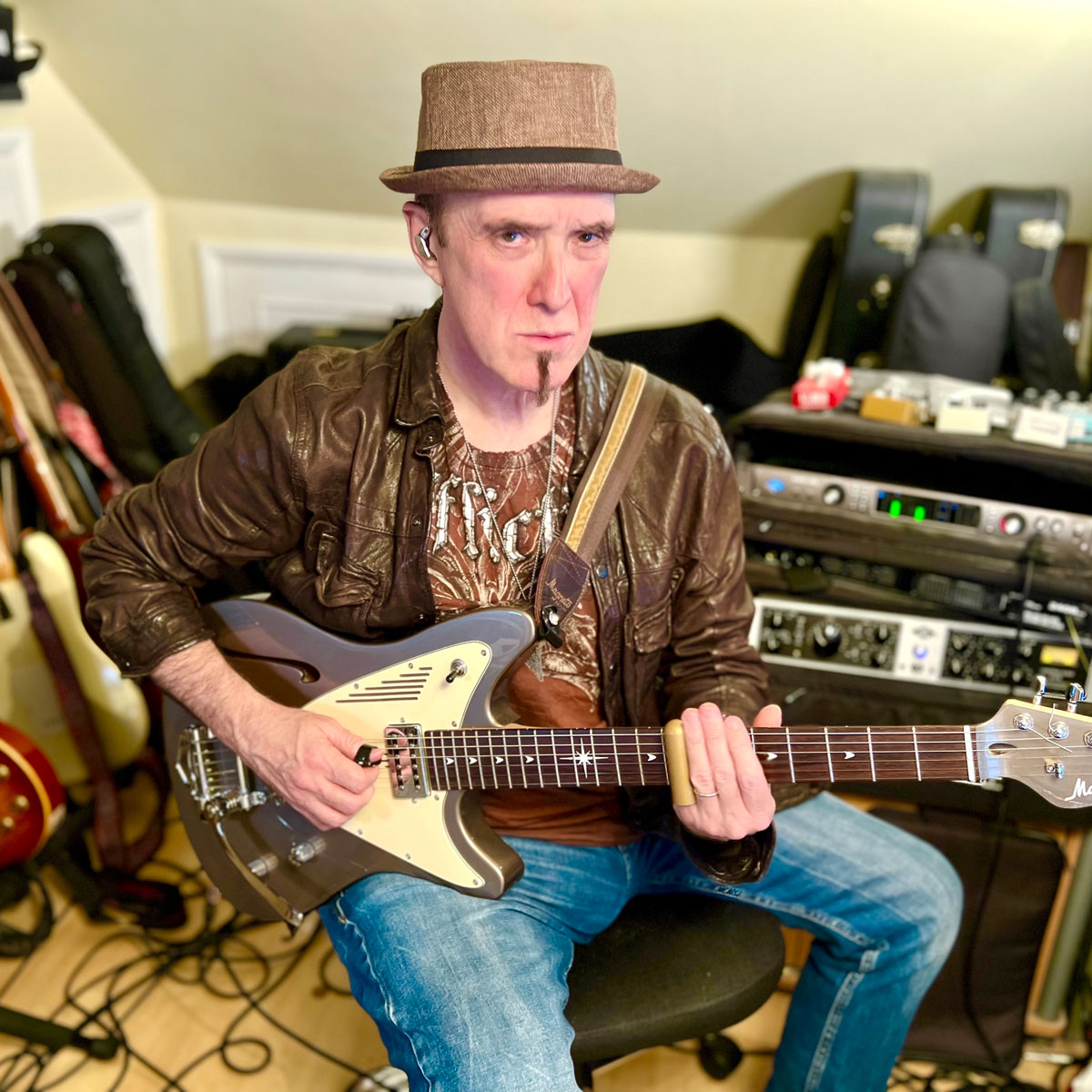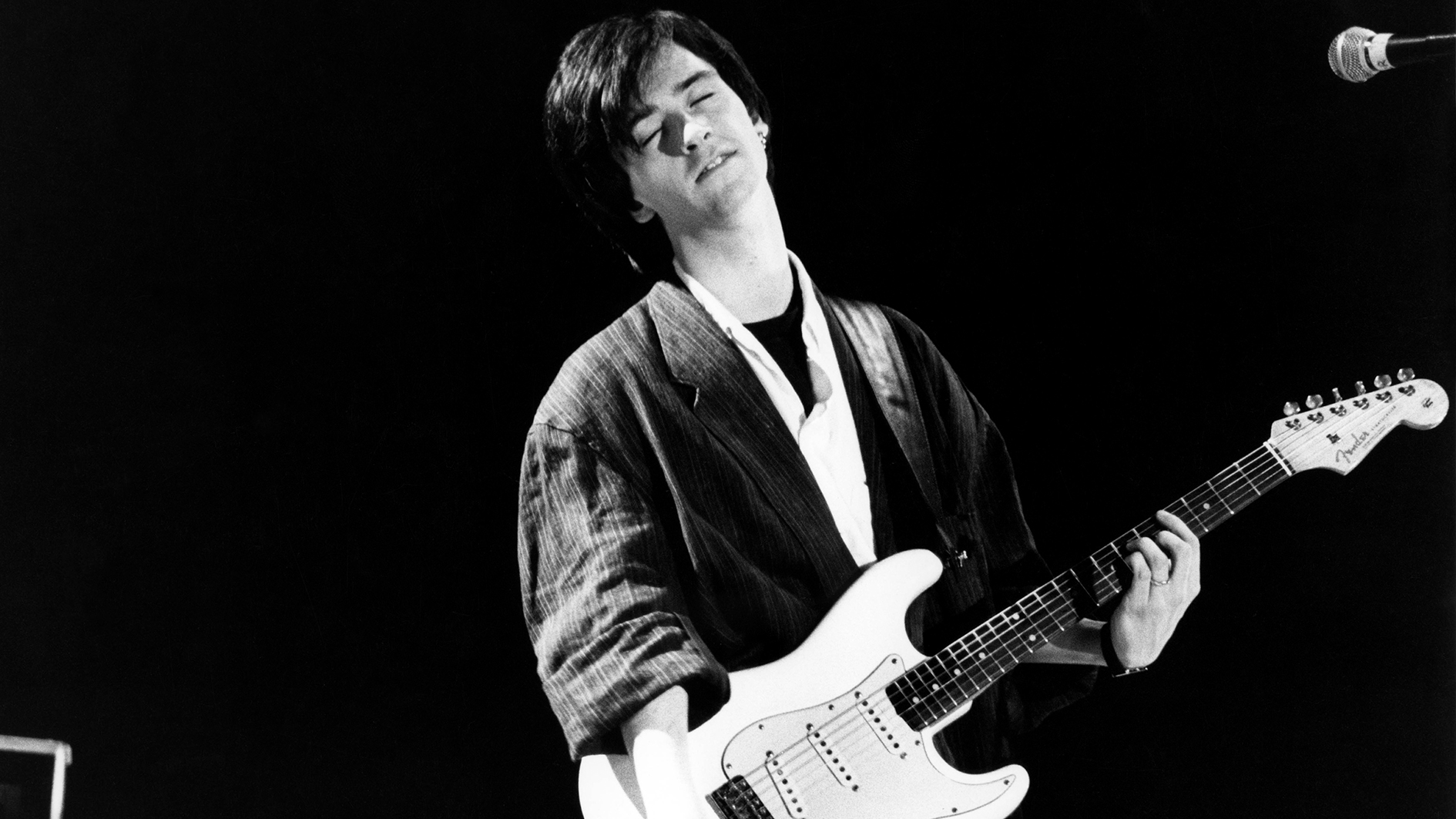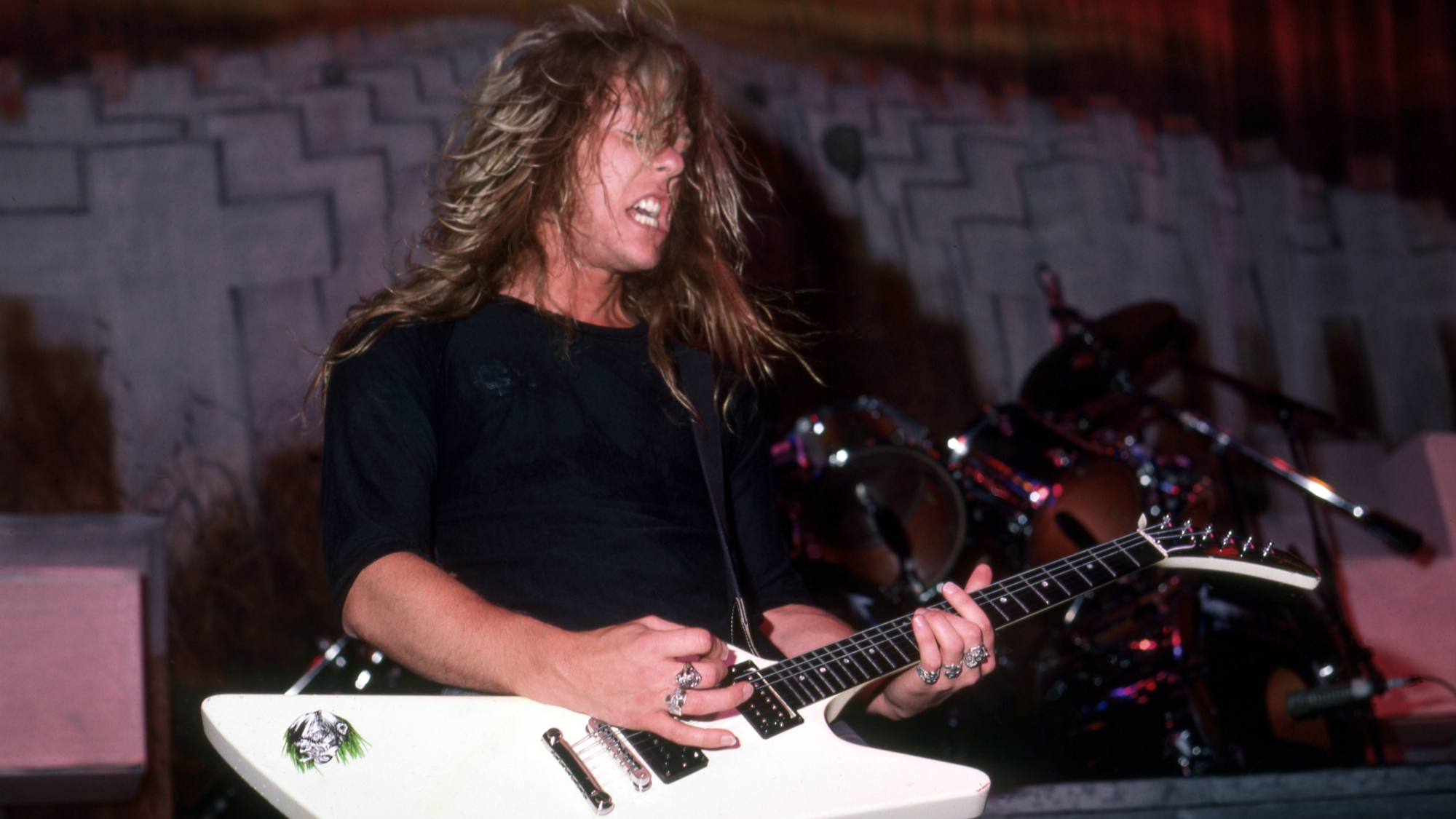How to create fluid streams of notes like Eric Johnson by combining economy picking with legato pentatonics
Let's talk about sextuplets, baby... and all the good things they can do for your lead phrasing when combined with a Johnson-esque picking strategy

This column continues our investigation of the use of sextuplet rhythms. This time we explore economy picking and position shifting. Both of these techniques constitute a huge part of the great Eric Johnson’s technique. Don’t worry! We won’t go for the blazing speed that Eric is known for, plus many of these lines rely on the minor pentatonic scale.
However, I thought I’d push the envelope a little by being a bit more adventurous with the last two examples. In these I’ll combine classic blues scale and minor pentatonic ideas with the half-whole diminished scale over a D7 chord. The notes of this scale are D-Eb-F-F#-G#-A-B.
Notably, this scale gives us the flat AND sharp 9ths with the major 3rd and the #11. With experimentation, you will note that any pattern of notes within this scale can be moved up or down by minor 3rd intervals (three frets at a time) and it will still be within the scale.
This sound is more evocative of players like John Scofield and Scott Henderson. And this scale, if used over a D7 chord, would be really useful if you want to create tension before resolving to a rather more consonant G or G Major 7th.
Economy picking is simply where you can choose to stroke the guitar pick from one string to the next. This can work with an upstroke or a downstroke, and this approach can make crossing from one string to another much easier. Most devotees of this approach tend to freely mix it with alternate picking and sweep picking (where you ‘sweep’ the pick over more than two adjacent strings).
Much has been written about pick slanting. This is where you angle the pick up slightly. This can be very effective with economy picking, but aim to avoid letting the pick move within your grip.
The second example starts off within A minor pentatonic but then branches off into the A Dorian mode. While a lot of teachers suggest that Aeolian is the first choice for sustained soloing over a m7th chord, the flattened 6th degree can be a little strident, so many find the Dorian sound is in some ways a little more stable.
The third example steps out of the economy picking format. It’s a legato minor pentatonic idea with a few blues scale moments, and spans several positions of the neck. There are a few moments where I used chromatic notes to pre-empt notes of the pentatonic. These notes make the line a little less familiar, and hopefully add interest.
Get the tone
Amp settings: Gain 7, Bass 6, Middle 5, Treble 7, Reverb 4
You’ll need reverb and a delay pedal for this tone. Try a vintage style delay. The tone should be a classic British cranked head into a 4x12 cabinet sort of tone (with a classy overdrive pedal and possibly a boost as well).
If there’s too much drive, the note definition could be compromised. The same could be said for the delay – too much will simply make your faster lines a mush.
Example 1. Minor pentatonics and blues scale ideas
Our opening example is a wide-ranging lick based on the E Minor pentatonic and E minor blues scales. Economy picking helps with string crossing.
Example 2. Economy picking pentatonics
This one makes even greater use of economy picking. To break up the relentless minor pentatonic lines, I added a blues-rock element at the end.
Example 3. Three-octave lick with economy picking
This idea is a mostly legato lick but you might want to use some economy or sweep picking where it helps. This one is impressive and spans more than three octaves.
Example 4. String-skipped arpeggios plus sextuplets
This idea starts with a bluesy idea but quickly slips into the D half-whole diminished scale and resolves at the end.
Example 5. Bluesy lick with a diminished line
We finish with another ostensibly bluesy lick, but this one uses the #11 and #9 as a bridge to the diminished line that follows.
Get The Pick Newsletter
All the latest guitar news, interviews, lessons, reviews, deals and more, direct to your inbox!
A professional guitarist for many years, Andy G Jones has played with Van Morrison, James Ingram, Lamont Dozier, Queen (Brian May and Roger Taylor), Robben Ford, Billy Cobham, John Illsley (Dire Straits), KT Tunstall, Albert Lee (featured on Andy's upcoming CD), Mike Finnigan, Dave Landreth and Ryan Voth from The Bros. Landreth, Malford Milligan, The BBC Radio Big Band, Patti Austin, Hamish Stuart (Average White Band), Lalo Schifrin (Hollywood film composer Bullitt, Mission Impossible), Hank Marvin, James Dean Bradfield (the Manic Street Preachers), Grady Tate, Agnetha from ABBA, Cliff Richard, Dudley Moore, Nathan James (Inglorious), Joey Tempest (Europe) and Kelsey Grammar.










![Joe Bonamassa [left] wears a deep blue suit and polka-dotted shirt and plays his green refin Strat; the late Irish blues legend Rory Gallagher [right] screams and inflicts some punishment on his heavily worn number one Stratocaster.](https://cdn.mos.cms.futurecdn.net/cw28h7UBcTVfTLs7p7eiLe.jpg)
